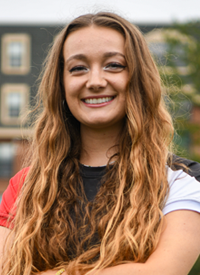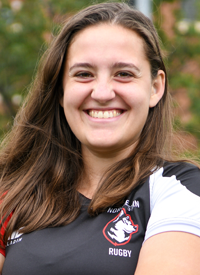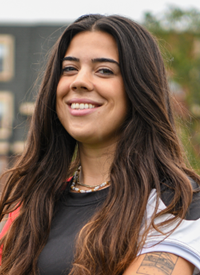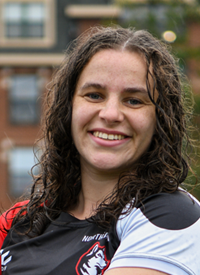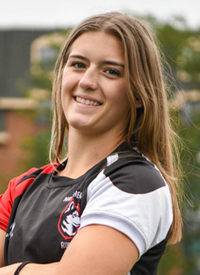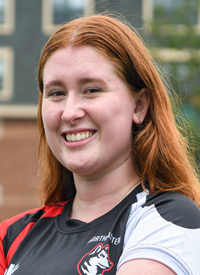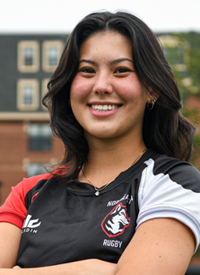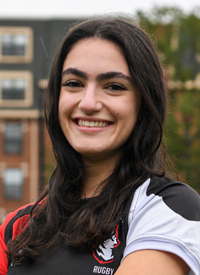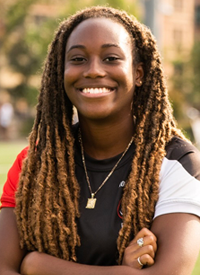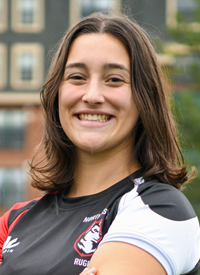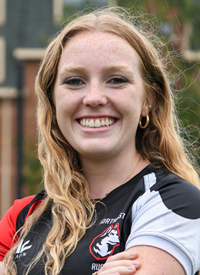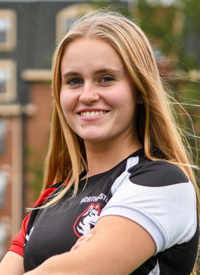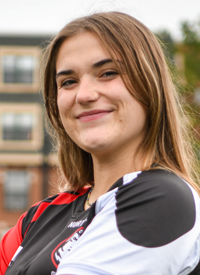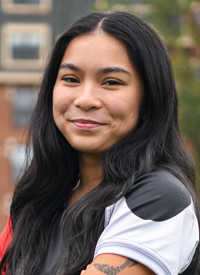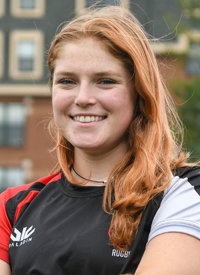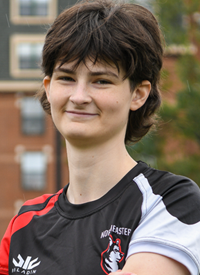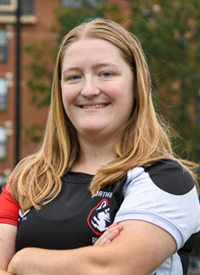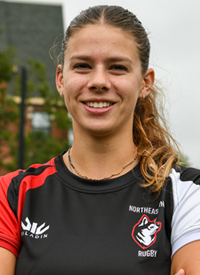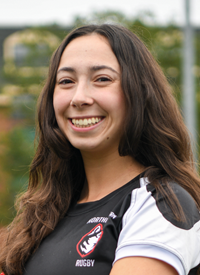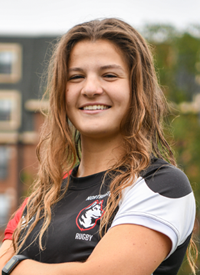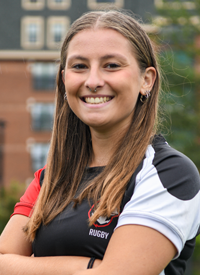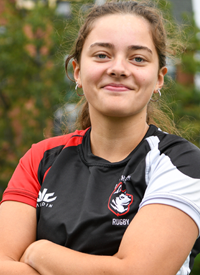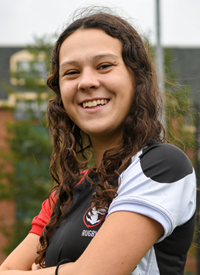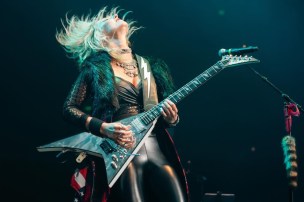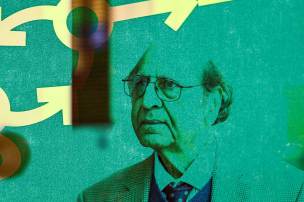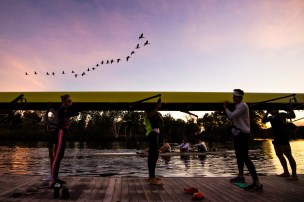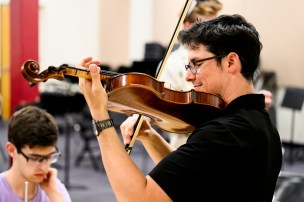Published on
Most never played rugby before.
Now they’re national champions
The Northeastern club team dominated Colorado Mesa University, 48-7, to win its first College Rugby Association of America women’s Division 1 title.
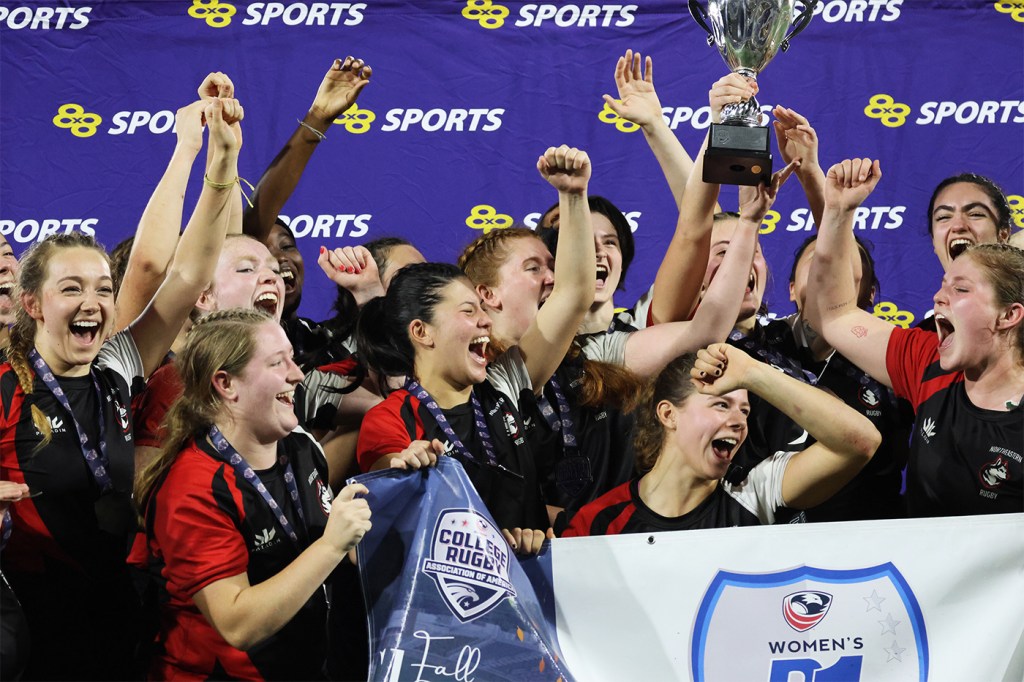
Kourtney Bichotte-Dunner, a newly arrived freshman at Northeastern, was exploring the student booths and tables at Fall Fest when a voice called out.
“Do you want to play rugby?”
“I was like, I don’t even know what that is,” says Bichotte-Dunner — who two years later finds herself celebrating a national championship as a key player on the Northeastern women’s rugby team.
After several years in contention, the Huskies won their first College Rugby Association of America women’s Division 1 national title in rugby union, fielding 15 players per team. They dominated Colorado Mesa University, 48-7, in the Dec. 2 final in Charlotte, North Carolina.
Coach Keith Cattanach operates a club team of self-made players. Just four of the Huskies arrived with the experience of playing rugby in high school; most of them have learned the sport at Northeastern while aspiring for national titles.
Rugby, a British sport dating to the early 1800s, is the precursor to American football. The Northeastern players often find themselves having to explain that, yes, women play rugby.
“I feel like we get asked about it a lot when we stop at a Dunkin’ or whatever,” says Hannah Wilker, a fifth-year player on the team. “They’re like, ‘Women’s rugby — is that tackle?’ People make the assumption that inherently it has to be different from men’s rugby. And it’s not.”
Women’s rugby is a fast-developing collegiate sport that is on the verge of being recognized officially by the NCAA. For now, Northeastern competes at the highest club level in the U.S. while behaving very much like a varsity sport — as the Huskies showed in the recent CRAA final four.
One hundred players participate
“I’ve been coaching for 20 years,” Cattanach says. “It’s awesome to finally get a national title.”
Cattanach played club rugby in Boston with three women teammates who had nowhere else to compete because of a dearth of women’s teams at that time. He began coaching at his alma mater, Wentworth Institute of Technology, before jogging a short distance down Huntington Avenue to take over the women’s club team at Northeastern in 2012.
“I had to grow my game and my knowledge,” Cattanach says of the challenge at Northeastern, which has fielded club teams in women’s rugby since 1995. “I had to grow as a coach.”
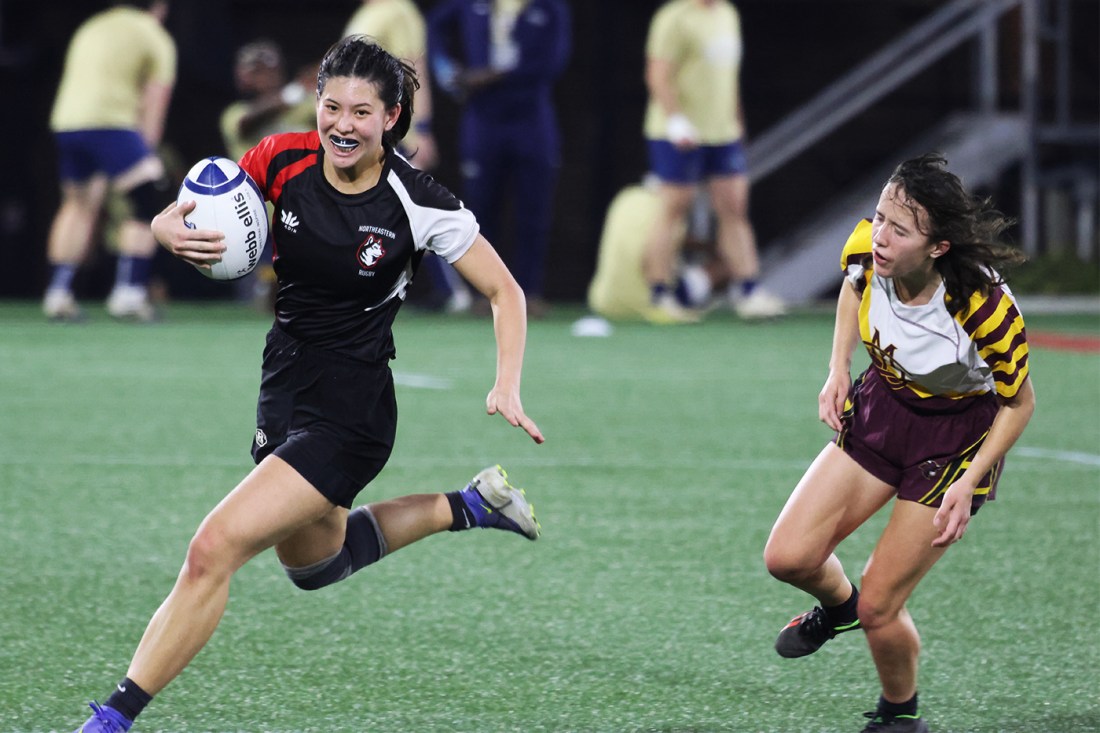
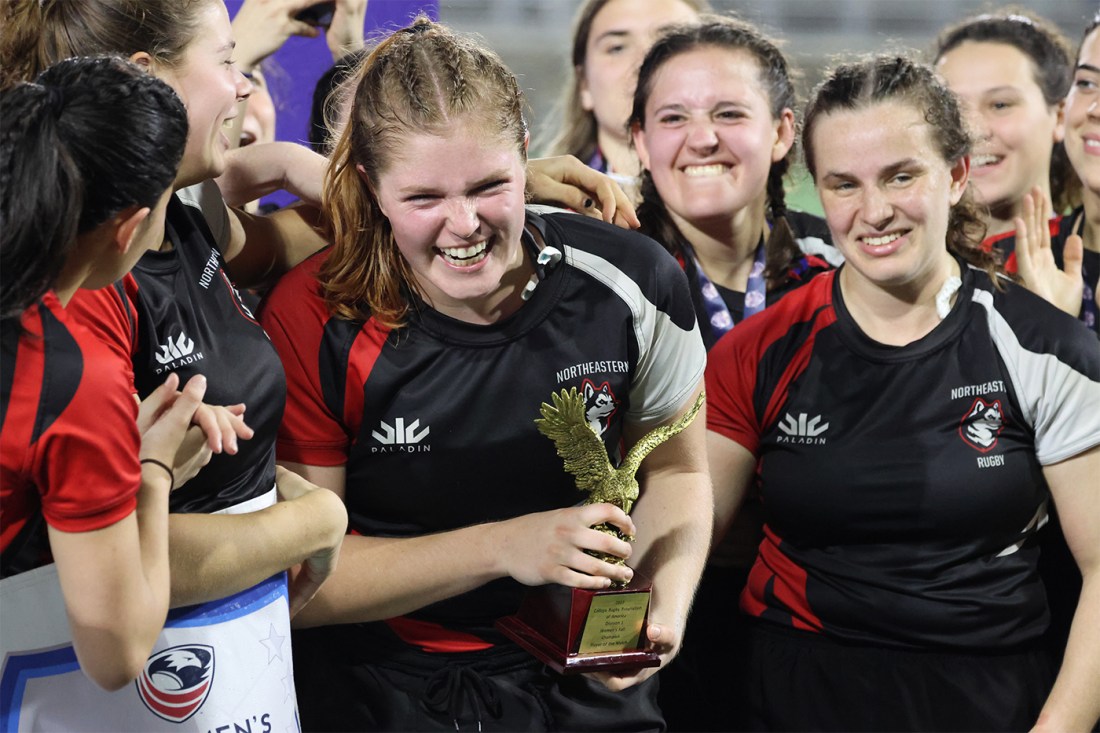
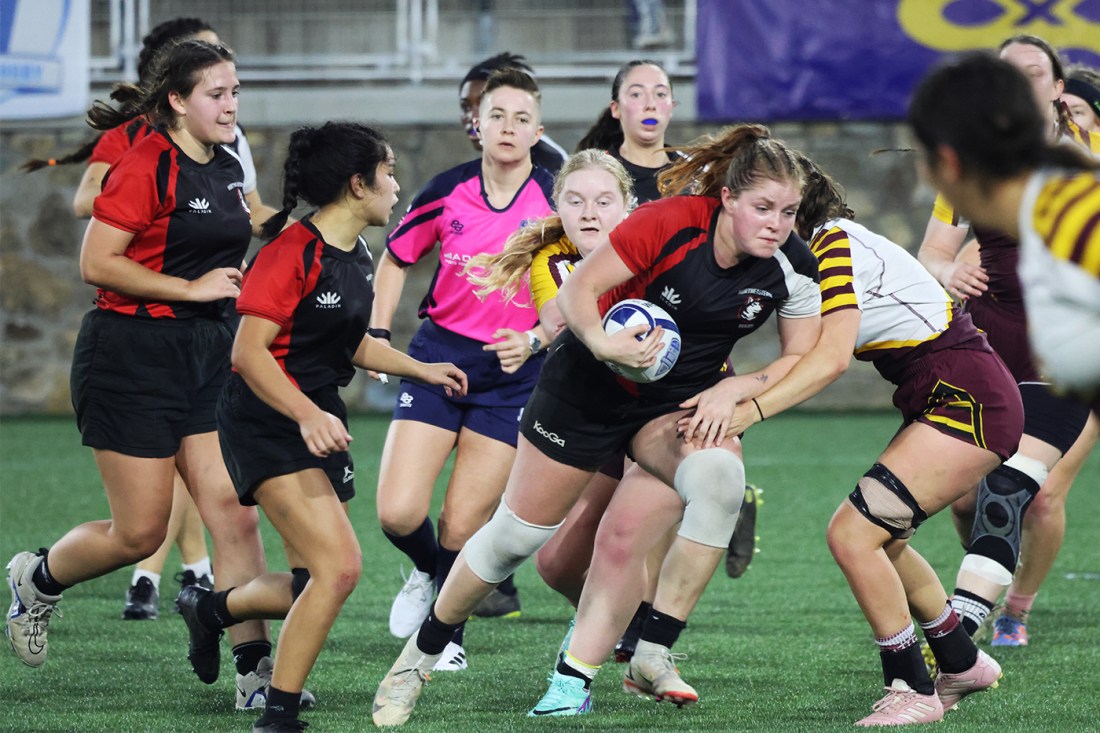
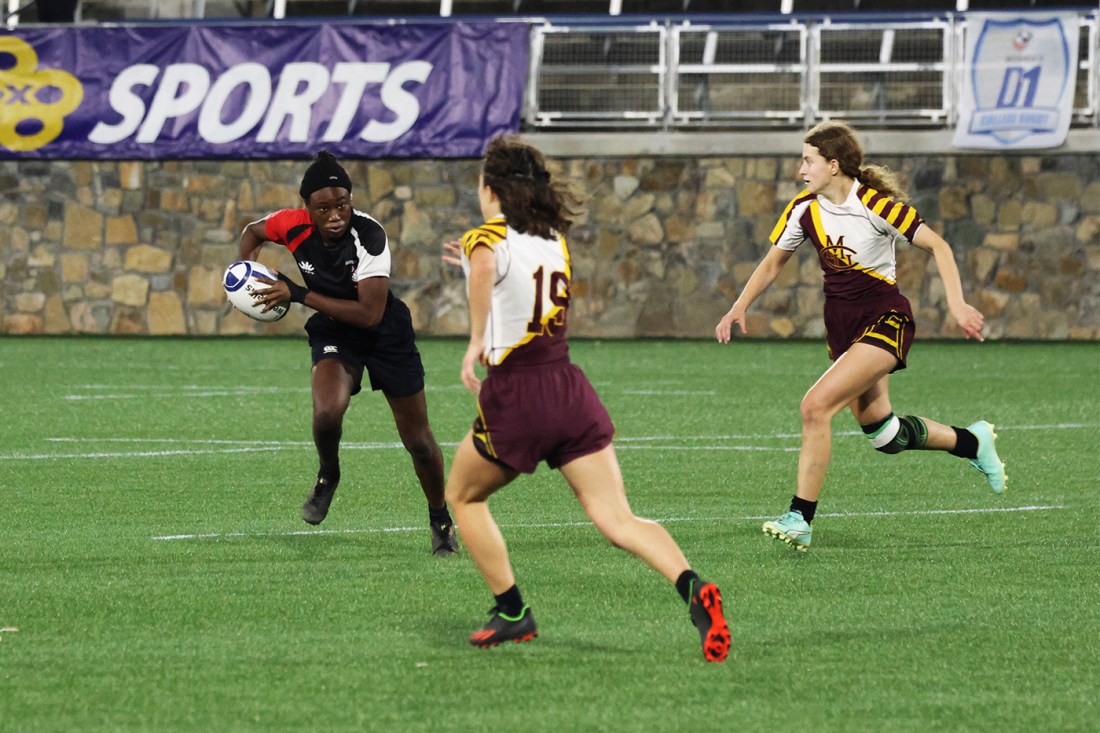
After three years in last place, the Huskies began their ascent. They’ve won Rugby Northeast for five years running, culminating in a 91-7 conference title win last month over Boston University.
Cattanach has built a staff of high-performing assistants — Margaret Reiss, Tara Watson and Zoe Kim — who have helped Northeastern develop championship players from scratch. As many as 100 players may be competing within the club at the start of the season. Cattanach separates them into “A” and “B” sides based on experience.
“We divide up the groups so that we’re not reteaching people who have already been taught the basics,” Cattanach says. “During the season we have ‘A side’ and ‘B side’ matches so that you can get on the field against people of your level — like having a varsity and junior varsity in high school. It gives us an opportunity to see who can perform without having them stress out that this game is going to affect our standings.”
The Huskies are a meritocracy that enables underclassmen to earn minutes based on achievement — a commitment to excellence that has sparked the club’s steady rise since 2015.
“Instead of being there just for fun, they took on a more serious role where they were training outside of practice,” Cattanach says.
The competitiveness of the sport attracted Wilker, who had played soccer and tennis in high school.
“I always felt in soccer I had to physically hold myself back a lot,” says Wilker, who also played for a team in Dublin while studying abroad. “But here my physicality was a massive advantage.”
The first breakthrough came last spring when the Huskies won the national championship in rugby sevens, a more open version of the sport (equivalent to three-on-three in basketball).
“That helped us,” Cattanach says. “They realized we can get past some of these tougher teams and so the confidence really grew.”
But Bichotte-Dunner remained unsure the Huskies could duplicate that success in traditional rugby, where they had never reached the final round.
“I can’t speak for everyone but I was a little bit surprised that we made it this far,” she says. “Because all the other years we didn’t even get to second place.”
‘Every single one of them was crying’
The fall season began with a painful 57-10 loss at Bowdoin.
“They kicked our butts a bit,” Wilker says. “Which I think we needed — because the rest of the season we didn’t really face a ton of super-stiff competition other than against UConn (a 15-8 conference win at Connecticut in October).”
After the opening loss, the Bowdoin players broke out cartons of chocolate milk to share with the Huskies — an example of the social dynamic of rugby, which is known around the world as a sport of camaraderie and mutual respect. At Northeastern the team is broken into “families” that help prevent cliques and promote teamwork.
Members of Northeastern’s 2023 championship team:
“If I say I have two rookies, I guess they’re like my kids in a way,” Bichotte-Dunner says of her rugby “family.” “We hang out and have these big family events that we do together. It’s a way of staying connected and also making sure we’re all checking in on each other. For our team you don’t have to be the best player on the pitch — everybody’s presence matters in whatever capacity they’re able to give.”
“What’s so special about rugby is everyone has a role on the team no matter their size,” Wilker says. “You can be 200 pounds or you can be 110 — no matter what, you can find something that can be to your advantage on the rugby field.”
The team practices three nights per week and plays matches on weekends.
“I know it’s considered a club, but we treat it like it’s a sport — we expect people to put in the work and commit and really drive to excel,” Cattanach says. “I always use the term student-athletes because that’s what they are. So if a student says, ‘I can’t make practice this night,’ my answer is, ‘If you have to study and prepare for an exam, or you need to get a project done, you’re here for school first.’
“We expect them to be at two out of the three practices a week. It’s a tough balancing act but we get it done.”
Cattenach was forced to cut the roster to 26 players for the national final four in North Carolina. Before the 2 p.m. Saturday semifinal against Air Force, many of the Huskies could be found in their hotel lobby, working on semester-ending class projects or studying for finals. The same scene was replayed the next day prior to the 4 p.m. championship final.
“It’s a bit of a crunch time around finals,” says Wilker, who after graduating this month in bioengineering will begin pursuing a master’s in biochemistry. “It was all the more satisfying knowing that I had to come back and do my capstone project after winning the rugby final.”
The speedy Bichotte-Dunner, who ran the 200 and 400 meters on the track team in high school, scored the crucial opening try in both matches. She says rugby has helped heighten her sense of focus.
“Other than having more muscle mass, I would say the big thing is whenever I’m at practice or playing the game my mind doesn’t think about anything else,” says Bichotte-Dunner, a junior who is studying environmental studies at Northeastern. “Usually I struggle outside of rugby with doing certain things because my mind goes everywhere all at once. Rugby really helps me focus on one thing so that I’m not trying to think about too many things at a time. I’ve seen that it has helped with my productivity a lot outside of rugby.”
The Huskies prevailed, 41-22, in the semifinal, then dominated the final with a 41-point win over Colorado Mesa — yielding a lone penalty try while revealing their strengths across a variety of areas as junior Molly McAlevey was named tournament MVP. Though they knew throughout the second half that the long-awaited championship was theirs, the final whistle nonetheless delivered a shock.
“I was super proud and happy — mainly for the older vets who have been working at this for a long time,” says Bichotte-Dunner of a large group that included Wilker as well as captains Tori Izsa and Ella Hughes. “Every single one of them was crying.”
Ian Thomsen is a Northeastern Global News reporter. Email him at i.thomsen@northeastern.edu. Follow him on X/Twitter @IanatNU.

